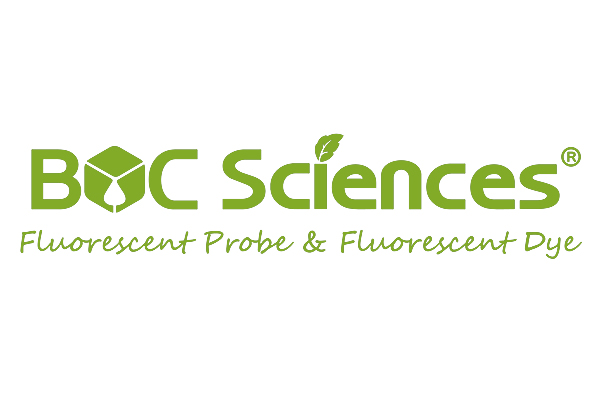
Azido-PEG8-NHS ester | CAS 1204834-00-3
| Catalog Number | R14-0316 |
| Category | Azides |
| Molecular Formula | C23H40N4O12 |
| Molecular Weight | 564.58 |
* Please be kindly noted products are not for therapeutic use. We do not sell to patients.
Product Introduction
Azido-PEG8-NHS ester enables bioorthogonal click chemistry in ADC linker design, improving conjugation efficiency and stability for targeted antibody-drug conjugates with enhanced pharmacokinetics.
Chemical Information
Product Specification
Application
Computed Properties
Patents
| Related CAS | 1108750-59-9 (polymer) |
| Synonyms | Azido-PEG8-CH2CO2-NHS; N3-PEG8-C2-NHS ester; N3-PEG8-CH2CH2COONHS Ester; 1-[(1-Azido-27-oxo-3,6,9,12,15,18,21,24-octaoxaheptacosan-27-yl)oxy]-2,5-pyrrolidinedione; 2,5-Pyrrolidinedione, 1-[(27-azido-1-oxo-4,7,10,13,16,19,22,25-octaoxaheptacos-1-yl)oxy]-; 1-Azido-3,6,9,12,15,18,21,24-octaoxaheptacosan-27-oic acid succinimidyl ester |
| Purity | ≥95% |
| Shelf Life | 0-4°C for short term (days to weeks), or -20°C for long term (months). |
| IUPAC Name | (2,5-dioxopyrrolidin-1-yl) 3-[2-[2-[2-[2-[2-[2-[2-(2-azidoethoxy)ethoxy]ethoxy]ethoxy]ethoxy]ethoxy]ethoxy]ethoxy]propanoate |
| Canonical SMILES | C1CC(=O)N(C1=O)OC(=O)CCOCCOCCOCCOCCOCCOCCOCCOCCN=[N+]=[N-] |
| InChI | InChI=1S/C23H40N4O12/c24-26-25-4-6-32-8-10-34-12-14-36-16-18-38-20-19-37-17-15-35-13-11-33-9-7-31-5-3-23(30)39-27-21(28)1-2-22(27)29/h1-20H2 |
| InChIKey | AZXJVYAMFTUKFC-UHFFFAOYSA-N |
| Solubility | Soluble in DMSO (10 mm) |
| Appearance | Pale Yellow or Colorless Oily Liquid |
| Storage | Store at 2-8°C |
Bioconjugation in Drug Development: Azido-PEG8-NHS ester is widely utilized in bioconjugation strategies for drug development, particularly in the synthesis of antibody-drug conjugates (ADCs). Its azide group allows for selective and efficient coupling with various biomolecules, such as proteins, peptides, or small molecules, through click chemistry methods, like the Staudinger or Cu-catalyzed azide-alkyne cycloaddition (AAC). This application is crucial for creating targeted therapies that can deliver cytotoxic agents directly to cancer cells, thereby minimizing off-target effects and enhancing therapeutic efficacy. Researchers are increasingly using Azido-PEG8-NHS ester to develop novel ADCs that improve treatment outcomes for various cancers while reducing systemic toxicity.
Enhancing Solubility and Bioavailability: The incorporation of polyethylene glycol (PEG) moieties, such as those present in Azido-PEG8-NHS ester, significantly enhances the solubility and bioavailability of therapeutic agents. By attaching this PEG linker to drugs or biologics, researchers can increase their solubility in aqueous environments, which is essential for effective delivery in vivo. This application is particularly beneficial for poorly soluble compounds, where enhancing solubility can lead to improved absorption and distribution within the body. Additionally, PEGylation can extend the circulation time of drugs in the bloodstream, allowing for prolonged therapeutic effects and reduced dosing frequency, ultimately improving patient compliance.
Protein Modification for Biomedical Applications: Azido-PEG8-NHS ester is also used for modifying proteins, enabling the introduction of new functional groups or labels for various biomedical applications. This modification can facilitate the study of protein interactions, localization, and dynamics in live cells. By attaching fluorescent dyes or biotin tags through the azide group, researchers can visualize proteins within cellular contexts or isolate them for further analysis. This application is vital for understanding the roles of specific proteins in cellular processes and disease mechanisms. The ability to modify proteins selectively and efficiently opens new avenues for research in proteomics and molecular biology.
Development of Diagnostic Tools: In addition to therapeutic applications, Azido-PEG8-NHS ester plays a significant role in the development of diagnostic tools. Its unique chemistry allows for the functionalization of biomolecules used in biosensors and imaging agents. For example, researchers can conjugate the ester to antibodies or aptamers that specifically recognize disease markers, enhancing the sensitivity and specificity of diagnostic assays. This application is critical in developing rapid and accurate tests for diseases, including cancer and infectious diseases. By integrating Azido-PEG8-NHS ester into diagnostic platforms, scientists can improve detection methods, leading to better patient outcomes through timely diagnosis and treatment.
| XLogP3 | -1.1 |
| Hydrogen Bond Donor Count | 0 |
| Hydrogen Bond Acceptor Count | 14 |
| Rotatable Bond Count | 29 |
| Exact Mass | 564.26427272 g/mol |
| Monoisotopic Mass | 564.26427272 g/mol |
| Topological Polar Surface Area | 152Ų |
| Heavy Atom Count | 39 |
| Formal Charge | 0 |
| Complexity | 693 |
| Isotope Atom Count | 0 |
| Defined Atom Stereocenter Count | 0 |
| Undefined Atom Stereocenter Count | 0 |
| Defined Bond Stereocenter Count | 0 |
| Undefined Bond Stereocenter Count | 0 |
| Covalently-Bonded Unit Count | 1 |
| Compound Is Canonicalized | Yes |
| Publication Number | Title | Priority Date |
|---|---|---|
| EP-3619216-A1 | Rapamycin analogs as mtor inhibitors | 2017-05-02 |
| WO-2018204416-A1 | Rapamycin analogs as mtor inhibitors | 2017-05-02 |
| US-2021094975-A1 | Rapamycin analogs as mtor inhibitors | 2017-05-02 |
| AU-2018249559-A1 | Trifunctional constructs with tunable pharmacokinetics useful in imaging and anti-tumor therapies | 2017-04-05 |
| CN-110612126-A | Trifunctional constructs with tunable pharmacokinetics for imaging and antitumor therapy | 2017-04-05 |
Recommended Services
Recommended Articles

- Hoechst Dyes: Definition, Structure, Mechanism and Applications
- Mastering the Spectrum: A Comprehensive Guide to Cy3 and Cy5 Dyes
- Fluorescent Probes: Definition, Structure, Types and Application
- Fluorescent Dyes: Definition, Mechanism, Types and Application
- Coumarin Dyes: Definition, Structure, Benefits, Synthesis and Uses
- Unlocking the Power of Fluorescence Imaging: A Comprehensive Guide
- Cell Imaging: Definitions, Systems, Protocols, Dyes, and Applications
- Lipid Staining: Definition, Principles, Methods, Dyes, and Uses
- Flow Cytometry: Definition, Principles, Protocols, Dyes, and Uses
- Nucleic Acid Staining: Definition, Principles, Dyes, Procedures, and Uses
Recommended Products
Online Inquiry


-tri-(azide-peg10-ethoxymethyl)-methanehclsalt.gif)







